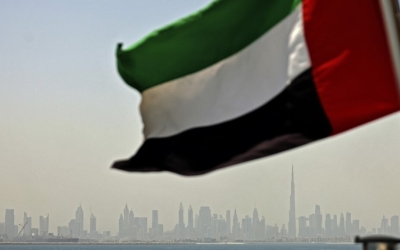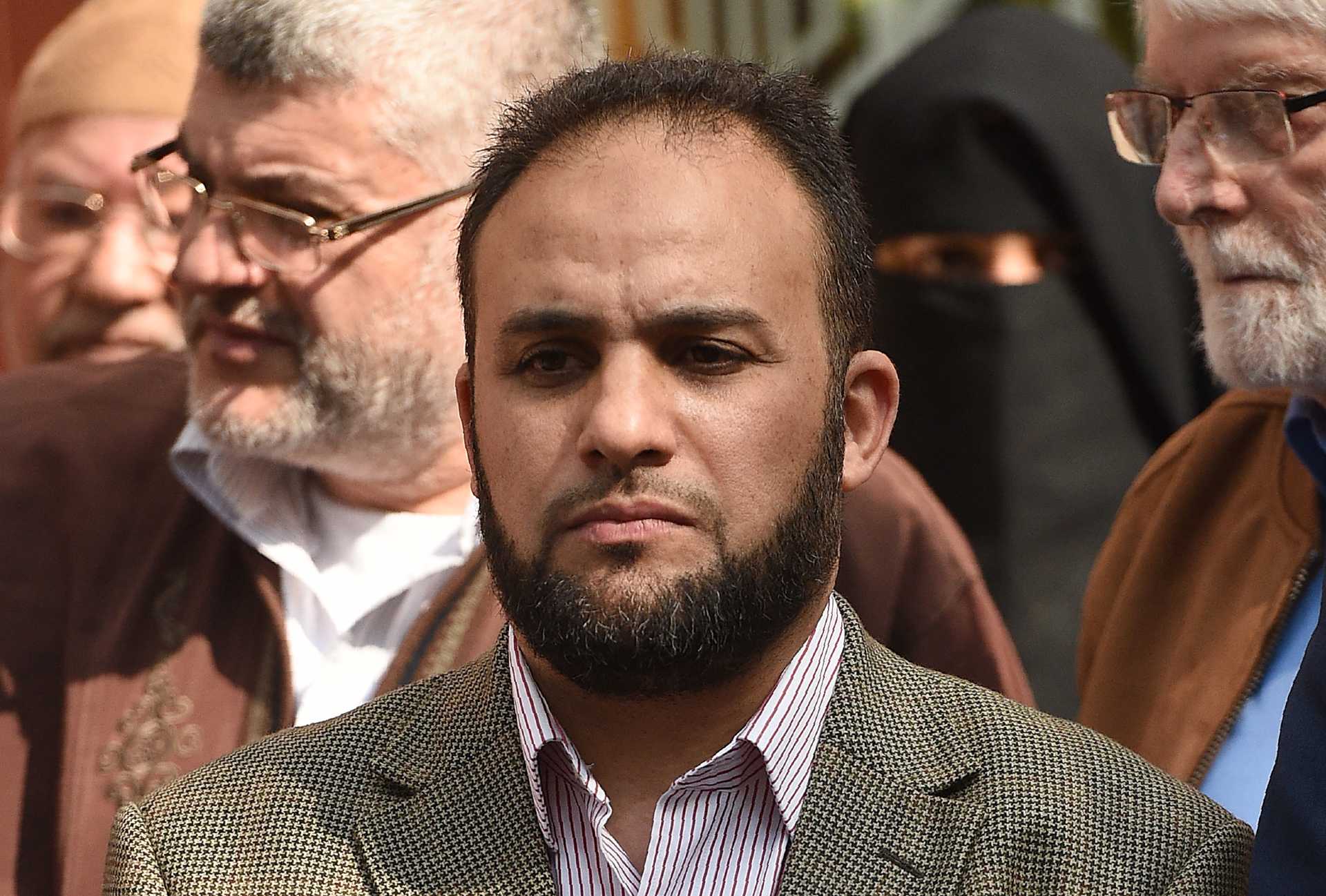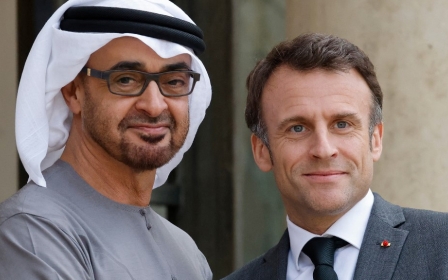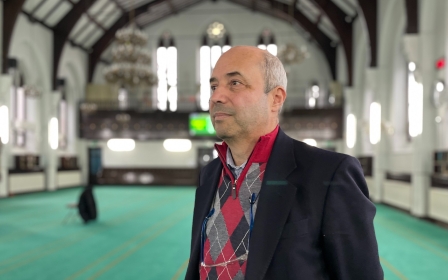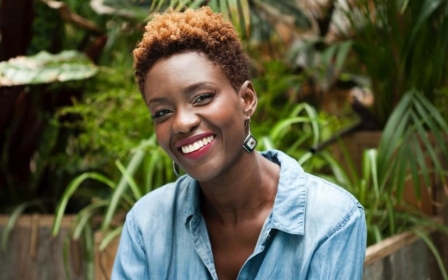Abu Dhabi Secrets: Manchester mosque was targeted by UAE smear campaign
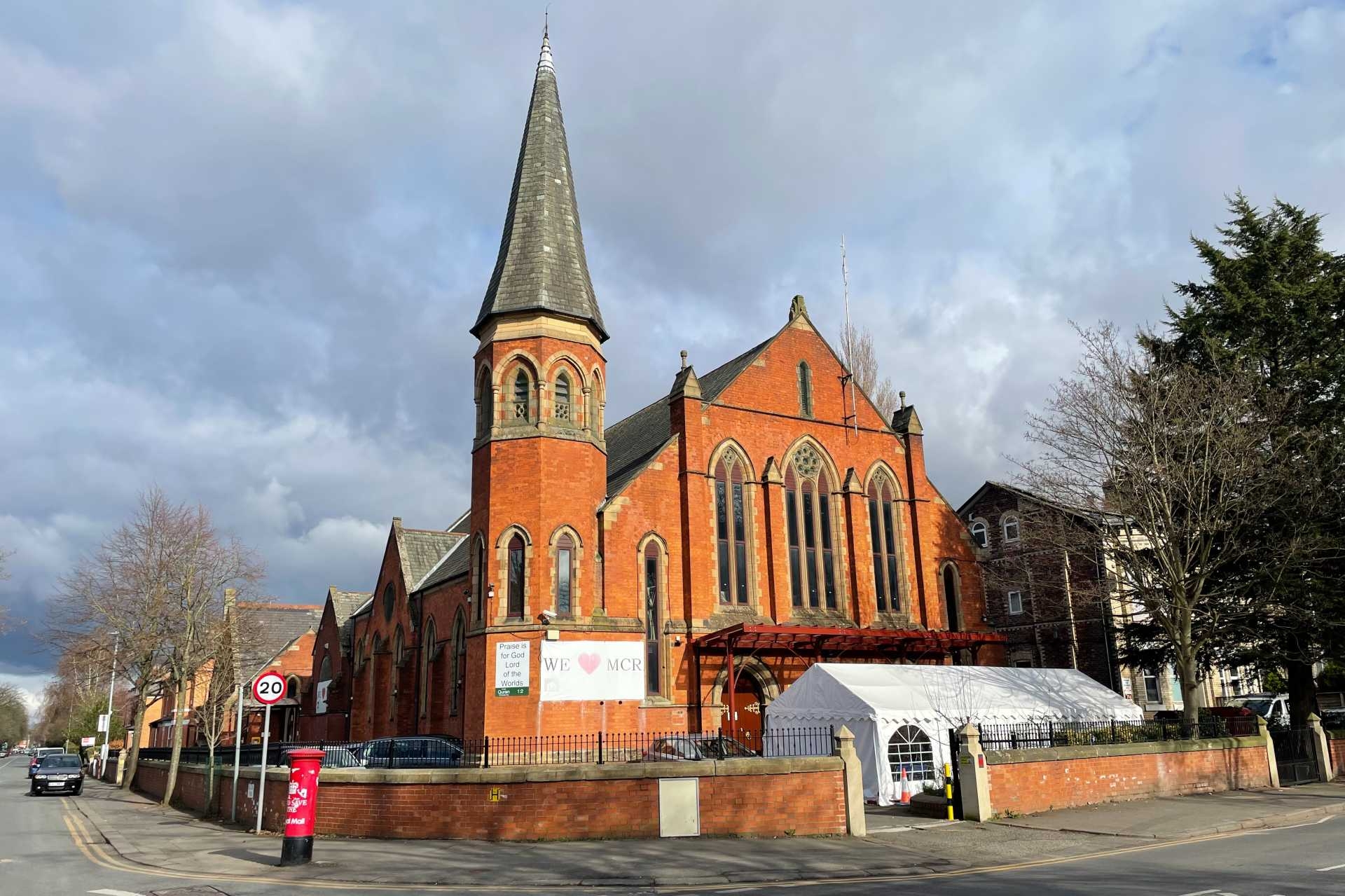
A mosque thrown into the media spotlight by the 2017 Manchester bombing was the target of a smear campaign orchestrated by the United Arab Emirates government, Middle East Eye can reveal.
The campaign was carried out by a Swiss private intelligence firm hired by Abu Dhabi and sought to falsely draw connections between the attack, the mosque, and the Muslim Brotherhood.
The Manchester Islamic Centre, also known as Didsbury Mosque, is among hundreds of organisations and people, most of them Muslim, in at least 13 European countries reportedly targeted between 2017 and 2020 by the Swiss firm, Alp Services.
Details have come to light after thousands of documents were initially leaked to the French newspaper Mediapart and then shared widely with journalists around Europe and in the Middle East.
Alp Services has said the documents were obtained unlawfully and are partially falsified. The company had not responded to MEE’s request for comment at the time of publication.
New MEE newsletter: Jerusalem Dispatch
Sign up to get the latest insights and analysis on Israel-Palestine, alongside Turkey Unpacked and other MEE newsletters
Fawzi Haffar, the chair of Didsbury Mosque, told MEE he was unsurprised to learn the mosque had been the subject of a smear campaign.
He said the mosque and the names of some of its trustees had already appeared in screengrabs of leaked documents published in Arabic media purportedly showing networks identified by Alp Services as linked to the Muslim Brotherhood.
“It made me laugh. I am definitely not close to the Muslim Brotherhood. I never have been,” said Haffar.
“I brushed it aside. I have become thick-skinned these days. People smear us all the time.”
Haffar said he was nonetheless “vexed” by the Emirati campaign that targeted Muslim organisations.
“Everywhere there is trouble, the Emiratis are there, whether it’s in Libya, Tunisia, or Yemen. Anywhere there is trouble they put their finger in it and cause more trouble.”
Mustafa Graf, a former imam at the mosque, told MEE: “I always felt the campaign against me at Didsbury Mosque was being orchestrated by someone with an agenda.”
Graf, who is Libyan, linked the campaign to his support for democracy in Libya, and Emirati backing for Khalifa Haftar, the eastern Libyan commander who has been battling the internationally recognised government in Tripoli for control of the country since 2014.
Neither the Emirati foreign ministry nor the Emirati embassy in London responded to MEE’s requests for comment.
'Two sides of the same coin'
Didsbury Mosque came under scrutiny following the May 2017 Manchester Arena bombing when it was reported that the bomber, Salman Abedi, and other members of his family had sometimes attended it.
An official inquiry earlier this year concluded that the mosque had played no part in the radicalisation of Abedi, a British-Libyan man who it said had likely fought in Libya as a teenager and was influenced by Islamic State (IS) ideology and his own family’s links to the militant Libyan Islamic Fighting Group.
But the mosque was criticised in the inquiry’s final report.
It concluded that Haffar, in giving evidence, had played down the strength of links between the mosque and the Abedi family.
It said the mosque had displayed “weak leadership” in failing to address a “very toxic political environment” fuelled by conflict and unrest in Libya.
Haffar told MEE after the publication of the report that he believed the mosque had been treated unfairly.
According to documents seen by MEE, the campaign against Didsbury Mosque was launched in 2018.
It involved publishing a number of online articles in English and French using fake identities that falsely linked the attack, the mosque, the Muslim Brotherhood, and the IS group.
“The Muslim Brotherhood and IS are essentially two sides of the same coin,” one article said.
“As IS is portrayed as a psychopath’s club, joined by brainwashed young fighters from around the world to carry out unimaginable atrocities across its collapsing 'caliphate', the Muslim Brotherhood acts as its discreet recruiter and fertilizer.”
One story on the mosque in French, which appeared on Mediapart’s own blogging site, is among 15 stories subsequently removed by the newspaper after it determined that they were the work of a fake account.
A Wikipedia page on the Manchester bombing was also edited in October 2018 to add a section titled: “Links with the Muslim Brotherhood."
The page was updated by a user who has made no other edits on Wikipedia and whose user page no longer exists.
The section on the English language page was curtailed in May this year, though the iteration of the page at the time of publication still included one paragraph of the text and an image of the mosque.
The same section was added to Wikipedia’s French language page by a different username and remains on the page.
In an impact assessment report, which dates from after the publication of the articles and the updates to the Wikipedia pages, the authors write: “We have started exposing the role the Muslim Brotherhood played in the attack.”
Publications posted as part of the campaign, including the Wikipedia section, had started to appear on the first page of Google search results about the bombing, the report said.
People working on the campaign, it said, were also “in discreet contact with British journalists” and had “attempted to very discreetly inform and alert the Charity Commission about the latest connections we uncovered”.
“Muslim Brotherhood radical networks should be held accountable and banned,” a report compiled as part of the campaign says.
“The Muslim Brotherhood is a terrorist organisation that must be stopped."
Documents seen by MEE also include publicly available details of the mosque’s financial records.
'Trial by media'
The campaign appears to have been initiated following a BBC news report in August 2018 that alleged Graf had called for armed jihad in a sermon in December 2016.
Mosque officials warned Graf at the time of the sermon that his language could be misinterpreted.
Graf said his sermon was intended to solicit donations to a Syrian aid charity collecting at the mosque at a time when Syrian rebels in Aleppo were under siege.
Following the BBC news report, he was investigated by both the mosque and the police and cleared of any wrongdoing.
Graf left the mosque in 2020 and is now based in Libya.
In a statement to the Manchester Arena Inquiry in 2021, Graf said he had been “put on trial by the media” over the sermon which, he said, had been “twisted to suit the agenda of others”.
Material produced as part of the campaign sought to connect him to the International Union of Muslim Scholars (IUMS), a Qatar-based organisation then headed by Egyptian scholar Yusuf al-Qaradawi, which the UAE has designated as a terrorist group and accuses of links to the Muslim Brotherhood.
It presents as evidence Graf’s attendance at an IUMS conference in Istanbul in 2014.
Graf told MEE he is not linked to the Muslim Brotherhood.
He said: “As a scholar, I am invited to events occasionally to advance my knowledge and interests and for learning. I am a well-known supporter of democratic and accountable governance in Libya.
“It is known the UAE supports the old regime and Haftar in Libya and therefore they try to smear anyone on the other side as extremists and terrorists.”
Documents and published material also draw links between several trustees of the mosque and charities banned in Israel or based in Qatar, which was then under blockade by the UAE, Saudi Arabia, Bahrain, and Egypt.
The campaign appears to follow the pattern of other reported cases in which articles by fake journalists and bloggers were created and information added to Wikipedia in an effort to discredit those targeted by accusing them of alleged links to the Muslim Brotherhood or Qatar.
The impact is hard to assess because Didsbury Mosque was in any case facing tough questions about what it knew about the Abedi family and other members of Manchester’s Libyan community linked to militancy.
Haffar was questioned about reported links between the mosque and the Muslim Brotherhood when he gave evidence to the Manchester Arena Inquiry in 2021.
Haffar told the inquiry: “We do not allow groups to come and hijack our mosque.”
He said he had only read reports of the mosque’s alleged connection to the Muslim Brotherhood “in the papers”.
“I do know people say that about us, people say many things about us, but I can assure you, I can assure everyone, the Manchester Islamic Centre is a middle-of-the-road, mainstream mosque," he said.
The only reference to the Muslim Brotherhood in the inquiry’s final report is in a section explaining the Libyan political context in which it is described as a “more moderately Islamist faction” contrasted with hardline militant groups that it concluded had likely provided Salman Abedi with training and combat experience.
Haffar told MEE he was sceptical that Alp Services’ efforts to inform the Charity Commission about the mosque would have had any consequences.
He said the mosque had by then already been visited by the regulator which had put in place an action plan to improve its governance.
“There were one or two issues. They asked us to put our house in order which we did,” said Haffar.
“If there was anything the Charity Commission would come to us straight away. But, at the same time, they are wise. They know when someone is trying to tarnish us.”
MEE asked the Wikimedia Foundation, the NGO behind Wikipedia, whether it was aware of edits being made to the online encyclopedia as part of alleged smear campaigns by the UAE government, and what steps it was taking to prevent further misuse of the site.
Wikipedia volunteers could report violations including “repeated vandalism, ‘sock puppetry’, undisclosed paid editing, or edit warring”, the spokesperson said.
“Mis and disinformation are issues that the Foundation and Wikipedia volunteers take very seriously, and there are numerous safeguards in place to tackle these issues,” the spokesperson said.
“In some cases, the Foundation will investigate larger issues of disinformation or harmful content that might appear on the site.”
Middle East Eye delivers independent and unrivalled coverage and analysis of the Middle East, North Africa and beyond. To learn more about republishing this content and the associated fees, please fill out this form. More about MEE can be found here.


